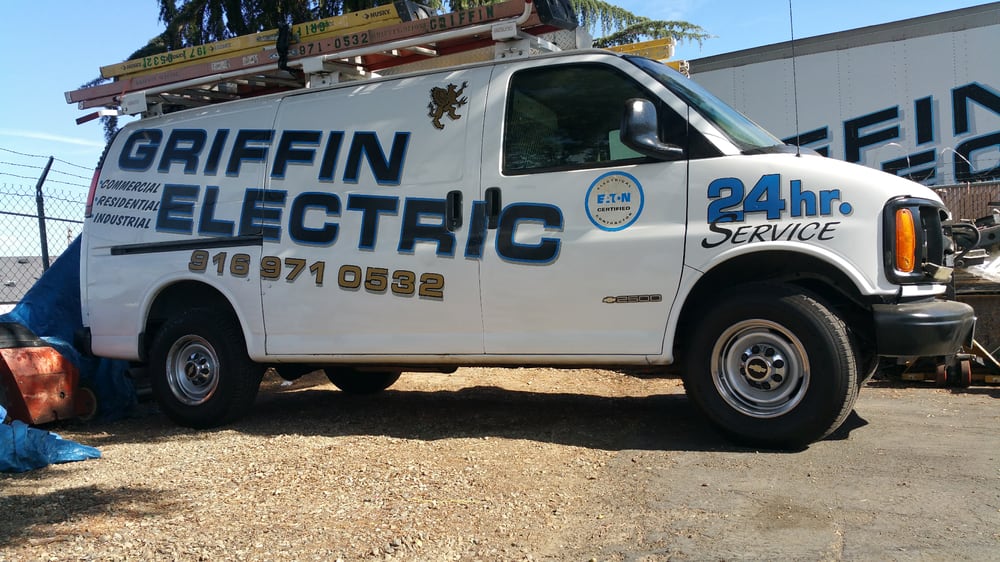Electrical System Need-To-Knows
Emergency Service Restoration:
Service Conductors or equipment damaged by accident, fire, or storm conditions such as ice or falling limbs may be restored to the original safe condition without required upgrading to current electrical codes assuming they did meet code at the time of original installation. This amendment differs by city.
Power Company:
If your problem is on the exterior of the home at the electrical service, Griffin Electric suggests that you contact your energy provider before a repair is made. Overhead connections from the service drop to the home’s electrical wiring are made by the energy provider. Repairs to be made within the meter base itself are the responsibility of the homeowner. If, for some reason, Griffin Electric makes a repair that the power company would have been responsible for, we will happily refund your money.
Permits:
Griffin Electric completes all repairs to meet current electrical code requirements. When a permit is necessary, the permit fee will include all costs associated with the permit. Insurance, overhead costs, city permit fee, labor to pull the permit and to meet the inspector (when necessary), are all included in this fee.
Safety:
Please understand that we train our technicians to look for safety concerns and address them. We care more about your home and your family then we do the unpleasantness of giving the “bad news”. All of our technicians are highly skilled and trained.
When Does A Panel Need To Be Replaced? Why?
Outdated:
The National Fire Protection Agency recommends that electrical panels be replaced every 15-20 years. See www.NFPA.com
Malfunctioning:
Arcing, pitting, or discoloration occurring on the bus bar are signs of overheating. This is a major symptom of a failing panel. See: NEC 110.12 (C).
Hazardous Panels:
FPE/Zinsco Panels – Federal Pacific Electric and Zinsco were both manufacturers of electrical breaker panels that were installed from the 1950′s into the early 1980′s. Several deaths, property losses, and electrical problems have been documented. There have been class action lawsuits, government investigations, and negative publicity associated with these brands. Due to high failure rates and potentially unsafe conditions of these panels, Griffin Electric chooses to be on the safe side and not replace breakers in and/or add to panels made by these manufacturers for customer safety and company liability. Some other electricians may choose to. If you are in question of the seriousness of potential hazards associated with these panels, we ask you to please research the dangers for yourself. In order to help homeowners remove these hazards, we offer special discounts if you have one of these panels.
See: www.ismypanelsafe.com and www.inspectapedia.com/fpe/fpepanel.htm
What Else Do I Need To Know About Replacing My Panel?
- Griffin Electric will recommend that existing panels that are located in a clothing closet or bathroom should be relocated. In the early 1980′s, the NEC ordered that over-current devices not be located in the vicinity of easily ignitable materials, such as in clothes closets, N.E.C. 240.24 (D), and the N.E.C code no longer allows installations in Bathrooms due to the fact that water and electricity combined is a very dangerous mixture. N.E.C. 240.24 (E)
- Cities and “grandfather” clauses. Many cities have amended a “grandfather” clause that is applicable to older homes and existing electrical systems. Generally, the city will not require you to relocate an existing panel. They do, however, typically require the relocation of the panel when the panel or electrical system is replaced and brought to current NEC and city codes. Many cities and mortgage companies will suggest the home electrical system to be brought to current code in order for a home to change ownership/possession. These requirements are also now being enforced with rental properties. Rental properties will also have specific code requirements regarding home electrical systems.
- Expect to be without power for approximately 6-8 hours on a typical installation. We will restore power as quickly as possible, and will try to exceed this expectation.
- All work will be completed to meet the current standards of the National Electric Code (NEC). All of our opinions, suggestions, and recommendations are based on the National Electric Code.
- Each city has different amendments to the NEC that they generally require. However, exceptions to these amendments may be made only by the city inspector at their discretion. Regardless if it is a city requirement, we will suggest & recommend the newest National Electric Code standards for ultimate safety, not just city code requirement.
- FPE and Zinsco are known for breakers not tripping when overloaded. When these panels are replaced, sometimes breakers start tripping due to overloads. This is not a problem in the new panel; it is a breaker working as it is supposed to work. The only suitable repair in that case is to upgrade or add circuitry.

A+ Customer Satisfaction
7 days a week,
365 days a year
